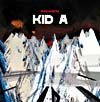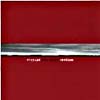
This week: Radiohead's mostly OK computers, Emmylou's high gloss, Mogwai's remixes
Radiohead

Kid A (Capitol)
So here's the scenario: you're a member of a relatively young band that has recently recorded an album lauded, almost universally, as a masterpiece. Your masterpiece is only your third full-length release. What do you do?
There are really two options. You can repeat the formula of the masterpiece ad infinitum, until the critics who once praised your band are kicking themselves for encouraging you, or you can set out to break new ground.
In the wake of their immensely successful OK Computer—which, I'll admit, hasn't left my CD player since I bought it over a year ago—Radiohead wisely chooses the latter option. Kid A is, indeed, a fairly unique release; and by that I mean that it's a unique release for Radiohead. It offers nods to several genres, like ambient and drum and bass, which the band seems to have been dying to explore for some time now, as evident on tracks like "Exit Music for a Film," on Ok Computer, and their ever-increasing reliance on electronic effects to add space and atmosphere to their recordings. The problem here is that the unexplored territory the band chooses to chart has already been discovered, explored, and has acquired the odd Wal-Mart or two over the last 10 years.
The first two tracks on Kid A sound, respectively, like a.) a relatively stale attempt at emo ambience, and b.) the product of an intensely polyrhythm challenged Amon Tobin. One has to wonder whether this move toward a more synth-driven approach is due in part to producer Nigel Godrich's apparent love of electronica, which is extremely evident on almost all of his more notable work.
This is not to say that the record doesn't have its high points. The third track, "The National Anthem," is brilliant. Beginning with a wonderfully syncopated, distorted bass pattern and adding synth effects over Thom Yorke's notably sparse vocals, the song culminates in a beautiful cacophony of horns—courtesy of the Mingus horn section—and guitar.
It's just that the "new" elements fail to cohere with the typical Radiohead approach and chop the record into two distinct, uncomplementary sounds. Based on the band's body of work, the album seems immature and unfocused. Take it for what is: a transitional document of a very talented band struggling to find a new voice.
—Josh Black
Emmylou Harris

Red Dirt Girl (Nonesuch)
Even though she's the grand dame of country-rock, Emmylou Harris is far better known for her collaborations than for her solo work. She began her career as a backup singer for Gram Parsons, and her commercial visibility peaked in the late '80s with Trio, recorded with Dolly Parton and Linda Ronstadt. Her last studio recording, 1995's Wrecking Ball, was something of a collaboration, too: the atmospheric production of studio svengali Daniel Lanois was a key element to the disc's success.
So it's little surprise that Harris doesn't carry the load entirely by herself on her new release, Red Dirt Girl. She wrote or co-wrote all but one of the disc's 12 songs (it's her first album of original material since 1985's The Ballad of Sally Rose), and she still has an exceptional voice. But she's complemented on Red Dirt Girl by a full band, including guitarists Buddy Miller and Jill Cunniff (of Luscious Jackson), drum machines, vocal appearances by Bruce Springsteen and Dave Matthews, and the lush production of Lanois protegé Malcom Burn.
But all that help gets in the way, giving the disc a studio polish that detracts from the real power of the songs and Harris's voice. The songs themselves are first-class singer/songwriter material, from the title track's story of a girl who never got away from home to Harris's too-late lament for her father on "Bang the Drum Slowly." But the glossy sheen keeps it all at a distance; Red Dirt Girl sounds more like the soundtrack to an Oprah Book Club selection than the deeply felt personal document it could have been.
—Matthew T. Everett
Mogwai

Fear Satan Remixes (Jetset Records)
Given the freeform nature of the genre, remix albums can be an iffy proposition for fans of any particular band. Depending on the taste and predilections of those reconstructing the tracks, remixes can either add new insights to an artist's work or veer so far off course that they lose any semblance to the original sound.
Scottish instrumental band Mogwai's ominously brooding post-rock is rife with transformation and repetition that is perfectly suited for remixes. And the 13 remixers on this double-disc set use Mogwai's sonic raw material to good effect.
The bulk of the tracks on Fear Satan Remixes falls in the chill-out mode, with a menacing subterfuge of course. And—just as in a standard Mogwai recording—as soon as the listener is lulled into a strangely beautiful nightmare, the reverie is shattered by a jolt of blasting rhythm and feedback.
Standout tracks of the first disc include Hood's remix of "Like Herod," Arab Strap's retooling of "Gwai on 45" and Klute's weird summer remix of "A Cheery Wave From Stranded Youngsters." The second disc is more experimental, allowing four remix teams to inject additional material to Mogwai's aural stew.
Fear Satan Remixes is for the most part a resounding success, which can be attributed to the top-tier talent of the remixers and to the quality and adaptability of Mogwai's music. And the bargain price of this two record set makes it a must have for Mogwai fans and technophiles alike.
—John Sewell

October 12, 2000 * Vol. 10, No. 41
© 2000 Metro Pulse
|